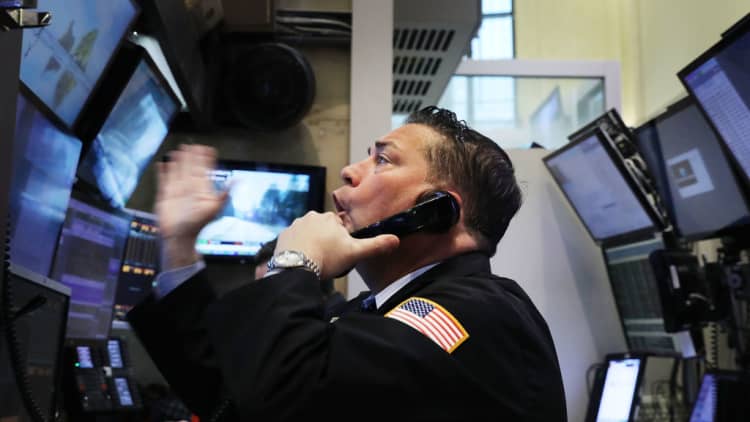
U.S. stock index futures pointed to a solid open on Monday, but worries about a return to inflation and a week of wild swings in the market kept investors on edge.
As of 5 a.m. ET, the implied open for the Dow Jones industrial average was about 300 points to the upside. S&P 500 and Nasdaq futures were also set for strong gains at the open.
The moves came after U.S. indexes rebounded on Friday, although the Dow still had its worst week in two years. The Dow Jones industrial average popped more than 300 points, recovering from deep early losses in what still amounted to the worst week in two years.
The Dow ended the day up 330.44 points, or 1.38 percent, closing at 24,190.90. The S&P 500 rallied 1.49 percent to finish at 2,619.55, while the Nasdaq composite added 1.44 percent to close at 6,874.49.
Still, both the Dow and S&P 500 declined 5.2 percent on the week on investor concerns over rising interest rates.
"While we cannot rule out further weakness (clearly it has gone deeper than we anticipated), we think the magnitude of the correction has largely run its course with the SPX testing its rising 200-day moving average and many metrics showing short-term washout conditions," Jonathan Krinsky, chief market technician at MKM Partners, said in a Sunday note.
"The bigger question becomes will we see the 'v-shaped' recovery that has become so common over recent years, or will it be more of a process like we saw following 2010's 'Flash Crash,'" Krinsky added.
Larry McDonald, head of U.S. macro strategies at ACG Analytics and editor of The Bear Traps Report, said this was a "trade-able bounce," but noted that a "true regime change is here.
In an email, McDonald said "the FOMC will have significant challenges providing the same accommodative policy and pulling the same liquidity levers in the new political landscape" following the passage of a major spending bill signed into law by President Donald Trump last Friday.
— CNBC's Fred Imbert contributed to this report.


